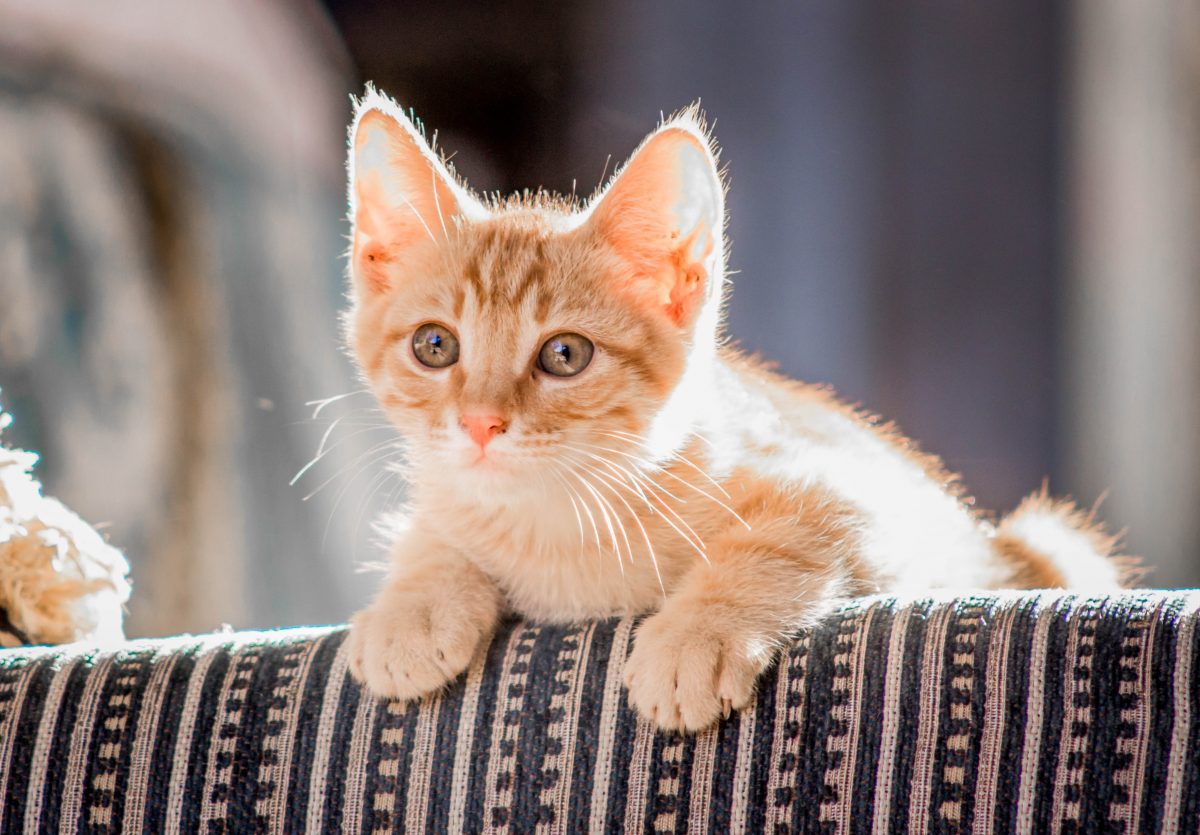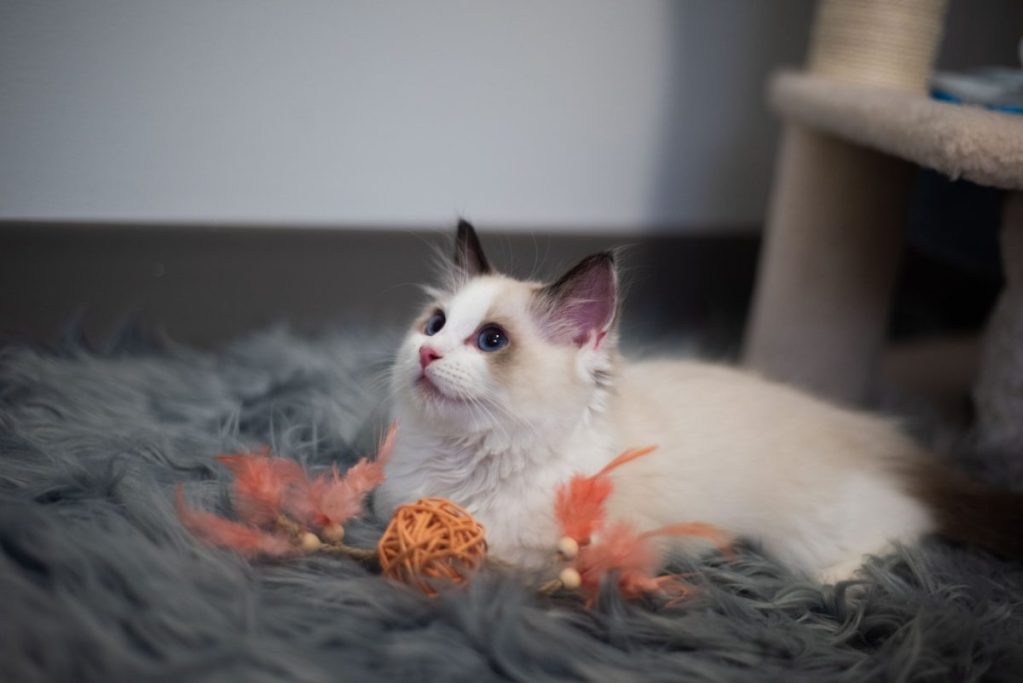
How Long Can You Leave a Kitten on Their Own?
11 Mar 2020.
The length of time you can leave a kitten on its own will depend on its age and health. And whether the kitten has a brother or sister to play with.
Table of contents
The Beginning….
A kitten’s sensitive period of socialisation and behavioural development is between 2-7 weeks; therefore the breeder would have been almost entirely responsible for ensuring your kitten was well socialised and desensitised to different people, noises, smells and other species of pet. A kitten that is well socialised during this time will usually be less anxious or fearful. They will likely cope better when you leave them on their own for any length of time. This makes it very important to check what sort of socialisation your kitten has had whilst with the breeder and to continue this process right up until around 10 weeks of age.
How long is too long?
Kittens under 4 months should not spend a period longer than 2-4 hours their own. From 4-5 months this can be increased to 5 hours and from 6 months up to 8 hours.
Young kittens, under 4 months, especially should not be left for long periods. If you have to leave your kitten on its own for longer periods of time, it is advisable to consider getting a cat sitter to pop by. This has the added bonus of also improving your kitten’s socialisation behaviours with new people.
How can I help my kitten feel comforted when I am away?
When leaving your kitten on its own, it’s a great idea to provide them with toys designed for young cats and activities to keep them occupied whilst you are away.
- Puzzle feeders
- Scratch and climbing posts or trees
- Toys: providing a good variety is essential to keep your kitten entertained. Rotate toys so they don’t get bored when you leave them on their own!
- Playing music. Certain types of music are thought to have calming effects on cats.
- Hide kibble or treats around the room (in safe locations) to encourage safe exploration and provide an outlet for hunting behaviour.
- Consider having two kittens from the same litter as they will occupy and play with one another.
- Have a cat-sitter pop by for a play date!
- Kittens love your smell, so maybe always leave a jumper or scarf behind. It will comfort the kitten while you are away and remind them of you.

What can I do to ensure my kitten is safe on its own?
Most kittens are inquisitive and will want to explore their new home. Often, this will happen when you leave your kitten on its own and it is quieter in the home. Unfortunately, there are many hazards in the home, some of which are often easily overlooked. Here is a quick guide on how to keep your house safe:
- Before you leave your kitten alone, confine them to one room, or an area of the house that can easily be “kitten-proofed”.
- If using a bathroom keep the toilet lid closed.
- Keep the washing machine and tumble dryer doors closed at all times.
- Remove any plants-particularly plants that could be toxic. Never keep lilies in the home, as these are very toxic to cats.
- Keep all medications out of reach.
- Remove any accessible electric cables or wires that curious kittens could chew on.
- If it’s dangling-it’s a toy! Wind up any cords from blinds or drapes, as these can be dangerous.
- Secure cabinets and drawers with child locks, particularly where chemicals and cleaning products are stored.
- Put away any breakables or valuables, even if they are kept up high, as kittens like to climb!
- Keep all windows closed, don’t leave them ajar. Your kitten might try to climb out.
- #catcare
- #catminder
- #catsitting
- #kitten
- #kittenbehaviour
- #kittencare
- #kittensafe


